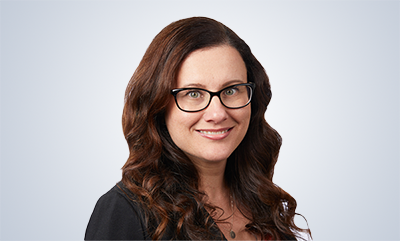Faculty Spotlight: Jaimie Gradus.
Collaborative work is key to developing sustainable public health solutions and improving population health outcomes. This weekly series spotlights one SPH faculty member who advances public health through collaborations within the field and across sectors.
 Can you talk a bit about your research interests in the epidemiology of trauma-related disorders?
Can you talk a bit about your research interests in the epidemiology of trauma-related disorders?
I’m a psychiatric epidemiologist whose work has focused primarily on the effects of trauma, trauma-related disorders (such as posttraumatic stress disorder or PTSD), and suicidal behavior outcomes. My interest in this area developed while I was working as a data analyst at the National Center for PTSD, which is part of the Department of Veterans Affairs, after getting my MPH at SPH.
Once I moved on to the epidemiology doctoral program at SPH I continued my work in this area, using the Danish national healthcare and social registries to examine traumatic experiences (like sexual assault) and trauma-related disorders as risk factors for death from suicide, in collaboration with the Department of Clinical Epidemiology at Aarhus University Hospital Denmark. I have been fortunate to receive multiple NIH grants to continue this work over the years. In these projects, I have constructed longitudinal cohorts of both persons who have experienced trauma and trauma-related disorders from the Danish registries and examine multiple long-term consequences of these events, including psychiatric, physical health and mortality outcomes.
Most recently (last week!), I was awarded a grant from the NIH to use data from the Department of Veterans Affairs to determine if there are any existing medications that can be repurposed for treatment of PTSD. I’m very excited to get to work on this study because discoveries in this study have the potential to greatly help persons with PTSD in the near term.
How is collaborative research integral to your work, and can you discuss one or two collaborations that have been most meaningful to you?
Collaboration is EVERYTHING! Truly. I could not do anything… I would not be able to contribute anything… nothing I do is possible… without my collaborators. Collaborators make everything better and everything possible. You’ve asked for one or two collaborations that have been most meaningful to me and I’ll apologize in advance that it is truly not possible to limit to that number, so I’ll keep each mention brief. The first is my mentor from graduate school, Timothy Lash, who is now a professor and chair of epidemiology at Emory University. He taught me almost everything I know and is still my number 1 sounding board for both scientific and career issues.
Another is everyone at the Department of Clinical Epidemiology at Aarhus University Hospital, particularly Professor and Chair Henrik Toft Sørensen, who has supported me and mentored me in a completely unwavering way for over 15 years. None of my work with that department would have been possible without him and everyone else there who keep my studies going on a day to day basis while I am in the US.
Also, my colleagues at the National Center for PTSD who I still collaborate with and who taught me everything I know about treating trauma and related disorders—information that is not always easily available to non-clinicians like myself, as well as my colleagues in the Department of Epidemiology at SPH, who welcomed me back after my years at the VA and are reminding me of every detail about epidemiology that I once knew before leaving for a clinical department.
And finally, the amazing doctoral students at SPH, particularly Tammy Jiang and Meghan Smith—who are critical to the execution of our grants in so many ways, and Nedghie Adrien, who has been with me twice now in leading EP850 (calling her a “TA” does not feel like enough), delivering a course that students love and that I could not do without her. I often say that I have been very lucky in my career this far, but the “luck” is all of these people who make everything I do not only possible, but also much better than what I would do on my own.
“Professor Gradus seems to excel at anything she takes on. Her successes can be attributed to intellect and hard work, but I’m sure Jaimie’s unbridled enthusiasm, genuine kindness, quick wit, and dedication play key roles as well.”
Martha Werler, chair of the Department of Epidemiology
Comments & Discussion
Boston University moderates comments to facilitate an informed, substantive, civil conversation. Abusive, profane, self-promotional, misleading, incoherent or off-topic comments will be rejected. Moderators are staffed during regular business hours (EST) and can only accept comments written in English. Statistics or facts must include a citation or a link to the citation.